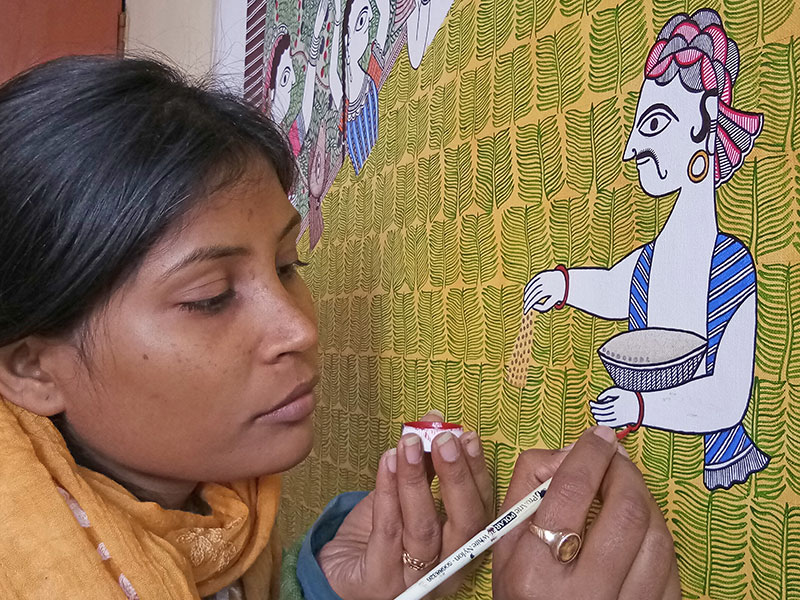According to the artists behind painting collective Mahalaxmi Das, their work “is a combination of common and uncommon things.” Their work is created with resplendent and staggering complexity, and fantastic detail. Artists Shantanu and Mahalaxmi most often paint in the Madhubani style, which originated in Bihar, specifically in the Mithila region, which is in the far Eastern part of India. Traditional Madhubani painting was heavily influenced by religious deities, as well as aspects of nature, and folklore. Historically, the colorful, painstakingly detailed works adorned walls, floors, and even ceilings of homes. It transitioned to paper only in the 1970s through an income-generation project.
Mahalaxmi and Shantanu joined together after becoming disenchanted by the monotonous work they saw flooding the commercial art scene. “We decided to break away and include subjects that were more unusual,” says Mahalaxmi, “like portraits of everyday people and even visual depictions of Hindi poems.”
Though historical precedents for Mahalaxmi’s Madhubani-influenced style depend on mythological themes and ritualistic designs, these artists are more drawn to new, everyday themes—an interest which developed into book illustration, collaborating with photographers to create mixed-media works, and even painting large-scale murals.
Despite various experiments, however, traditional techniques remain intact. When treating sensitive subjects like the ongoing injustice of a patrimonial system, the artists try to represent not only women’s pain, but also the inequality that’s still pervasive in Indian society. “We try to push the boundaries by including new themes,” explains Mahalaxmi. “It’s liberating as artists to know we can do that while still keeping the original technique intact.”
